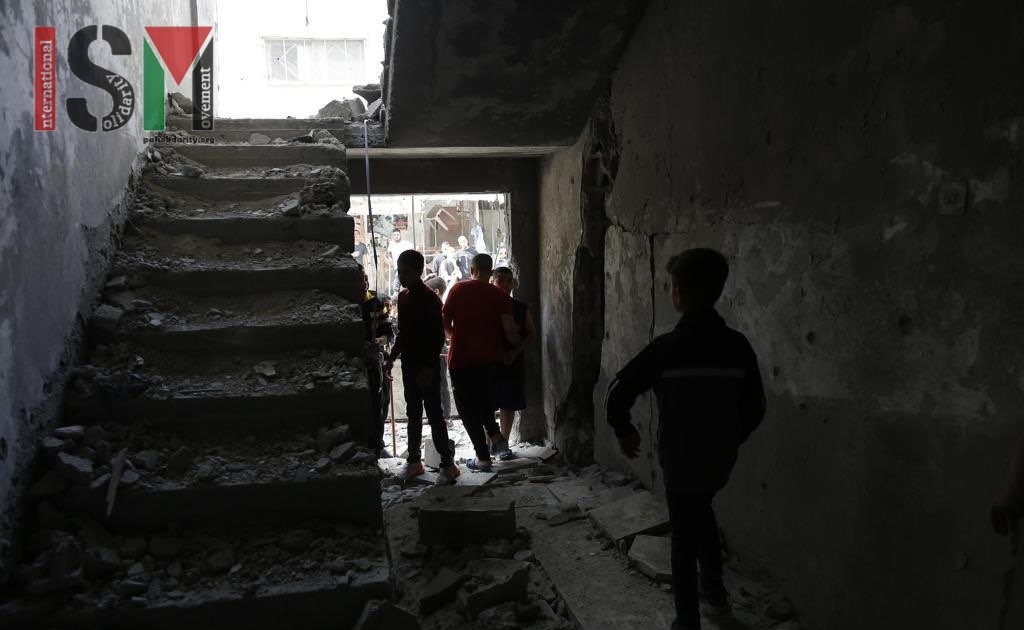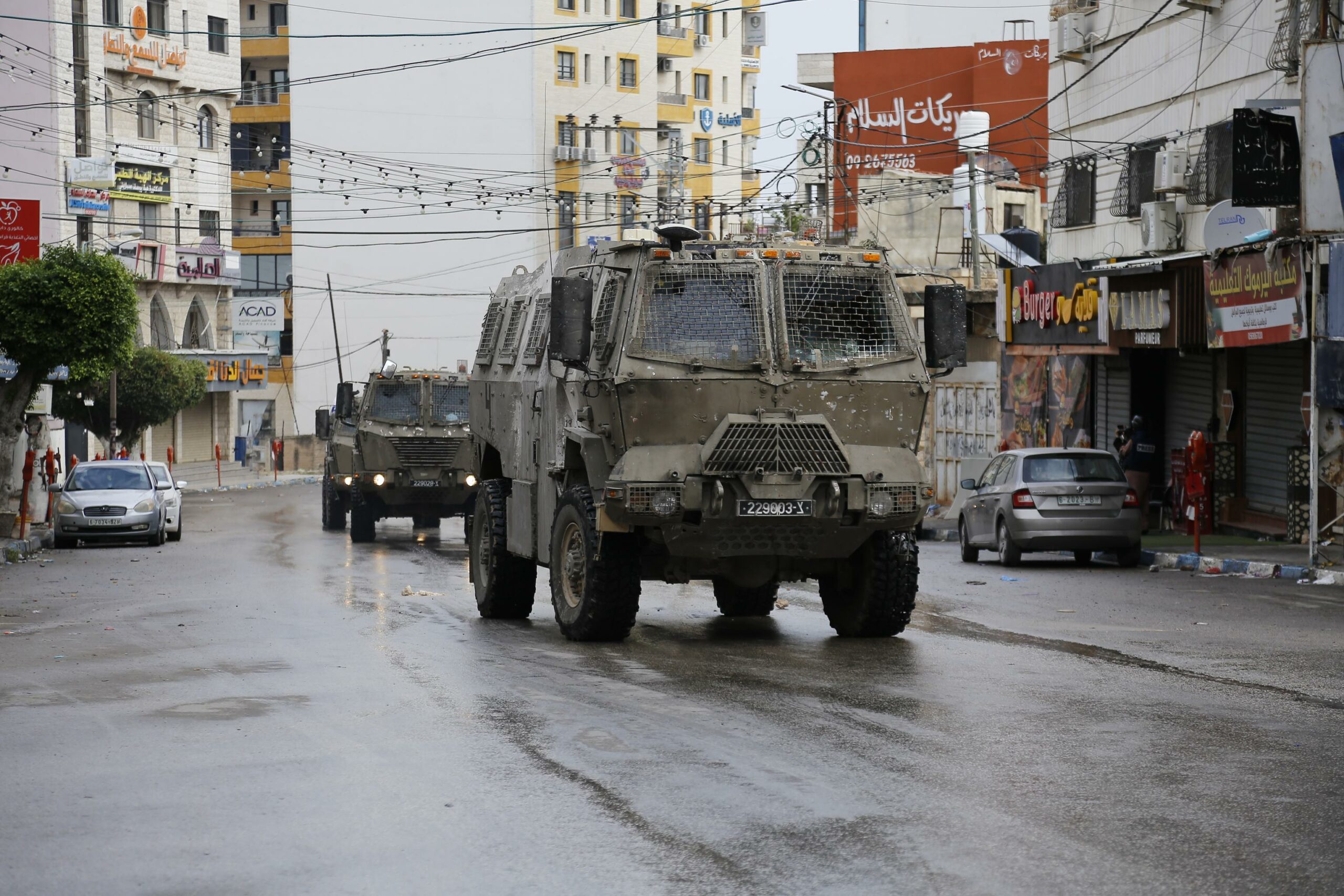Tag: Israeli Army
-
The Light of Truth
On November 20th, 2023, several of us, Palestinians and internationals, responded to document settlers and soldiers confiscating a young person’s phone and threatening and harassing their household in Al-Rakiz, at the outskirts of Tuwani. The motley bunch of 10-12 local illegal settlers masquerading as soldiers, some masked, didn’t like our being there and watching this…
-
The escalation of Israeli crimes in the West Bank
On the evening of Friday, November 17th, the Israeli occupation forces carried out an aerial bombardment in the Balata refugee camp, killing four Palestinian men.
-
Another crime committed in Tulkarem camp by the Occupation Forces
14 November 2023 | International Solidarity Movement | Tulkarem By Diana Khwaelid Another crime perpetrated by the Israeli occupation in the Tulkarem refugee camp. The blood of the four Palestinians who were killed about a week ago had not yet dried up before the Israeli Occupation Forces committed a new crime that claimed the lives…



